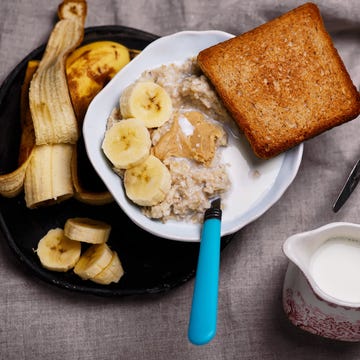It’s easy to take for granted a vegetable that has been cultivated for at least 5,500 years and was as ubiquitous on the menus of the ancient Egyptians and Sumerians as it is today in Italian, French, Chinese and almost every other cuisine. Can we expect to learn anything new about a plant so deeply rooted in our eating habits? Yes, actually.
According to scientists at Hokkaido Information University in Japan, it contains an abundant supply of a flavonoid called quercetin that not only exhibits antioxidant and antihypertensive effects, but can also help combat excessive visceral fat – the harmful kind that wraps around your abdominal organs.
In a 12-week trial, subjects ingested 9g of quercetin-rich onion powder per day, while maintaining their usual levels of exercise and dietary habits. At the end of the trial, those with low levels of the ‘good’ high-density lipoprotein cholesterol were found to have far less visceral fat build-up and healthier liver function than the control group. This, say the study authors, shows that the humble onion may be beneficial for preventing obesity.
What everyone's reading
Other studies have revealed more layers of benefits. The quercetin found in onions has been found to reduce symptoms of bladder infections, promote prostate health and lower blood pressure. There’s even some evidence to suggest that onions may have anti-cancer properties.
Be careful how you peel them, though. A study in the Journal of Agricultural and Food Chemistry found that there is a high concentration of flavonoids in the outer layers of onion flesh, so you’ll want to remove as little as possible of the edible part when peeling.
Power Plants
Here are three more plant chemicals with exciting benefits – and where you can harvest them from:
Resveratrol
Linked to: better heart health and blood-sugar management.
Found in: peanuts, pistachios, blueberries, cocoa, red wine. Combine dried fruit, nuts and chocolate for pre-gym energy.
Curcumin
Linked to: pain relief, reduced anxiety and depression.
Found in: turmeric. Whisk a helping of the powder into your scrambled eggs. Black pepper will ensure absorption.
Kaempferol
Linked to: an anti-obesity and possible anti-cancer effect.
Found in: cruciferous veg, spinach, potatoes, tomatoes. Batch cook a winter soup of kale, tomato and white beans.













